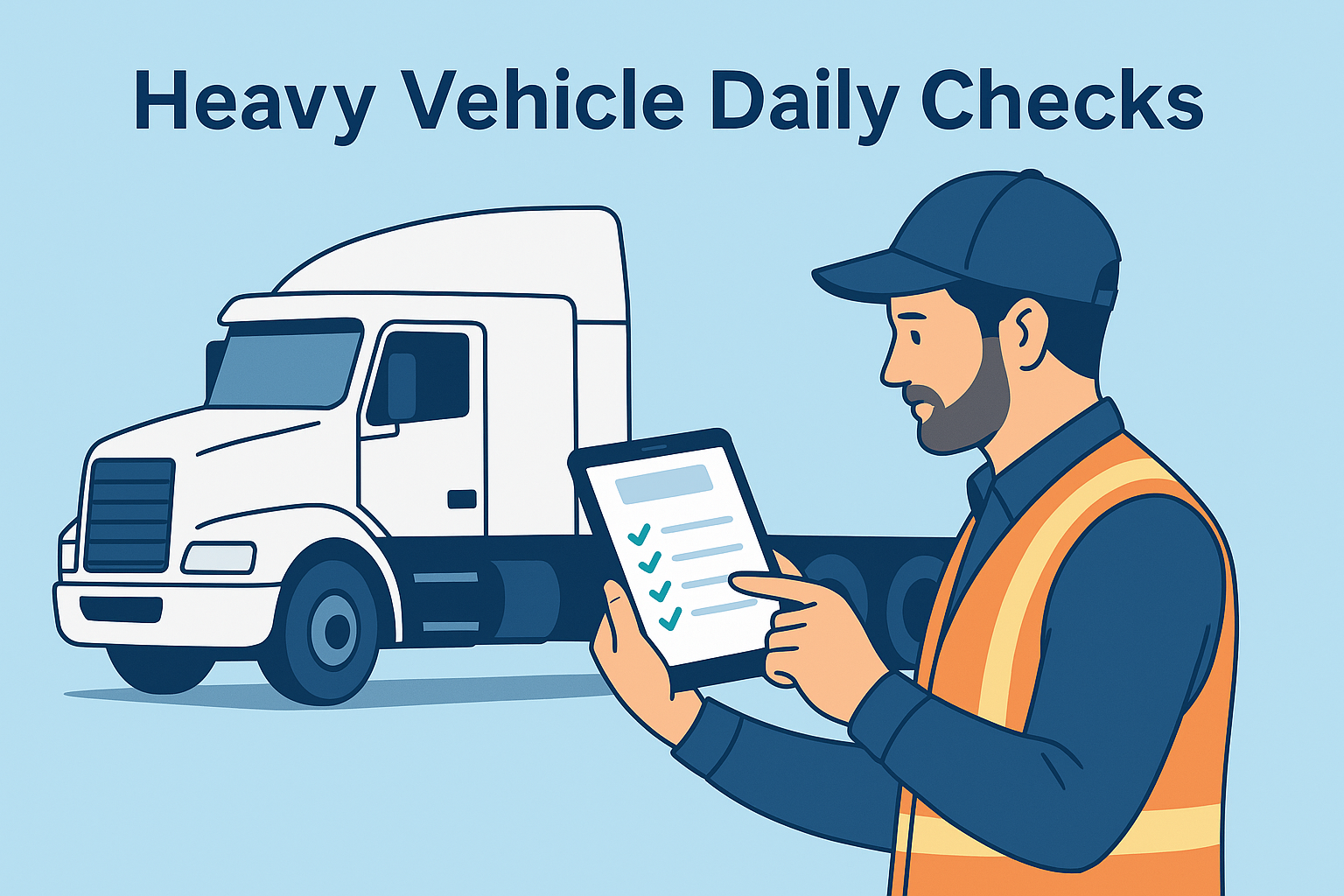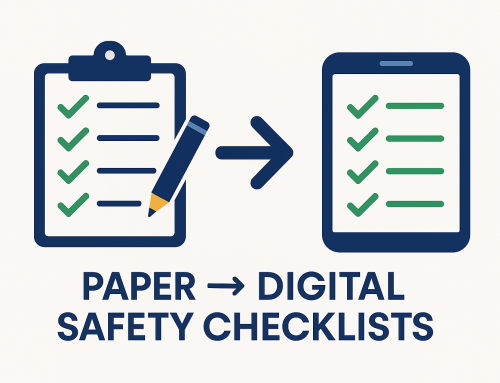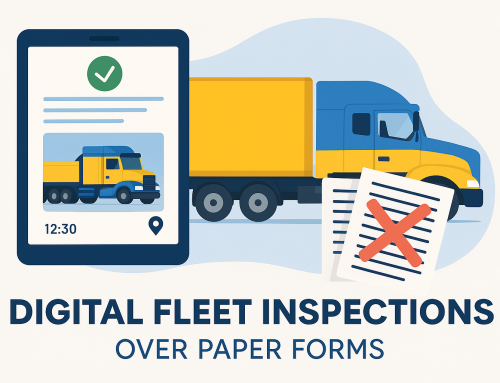Heavy Vehicle Daily Checks: Legal Requirements and Compliance
Heavy vehicle daily checks are not optional — they are mandatory under Australian law. The National Heavy Vehicle Regulator (NHVR) and Chain of Responsibility (CoR) legislation require operators to conduct and document daily pre-start inspections. These checks protect drivers, safeguard the public, and ensure vehicles remain roadworthy and compliant. Switching from paper to digital pre-start checklists makes this legal obligation faster, more accurate, and always audit-ready.
Quick Highlights
- Mandatory under HVNL and CoR legislation
- Daily checks must be documented and auditable
- Applies to all heavy vehicles over 4.5 tonnes GVM
- Digital records simplify compliance and inspections
Table of Contents
Heavy Vehicle Daily Checks: Legal Requirements and Mandatory Status
Yes, heavy vehicle daily checks are legally mandatory under the Heavy Vehicle National Law (HVNL) and Chain of Responsibility (CoR) legislation. The NHVAS Maintenance Management Standard 1 explicitly requires that every vehicle undergoes a daily check whenever it is in use. These obligations are legally binding, with significant penalties for non-compliance.
Scope of Mandatory Daily Checks
Daily inspections must cover all critical safety components, including:
- Wheels & Tyres – tread integrity, pressure, and wheel security
- Lights & Reflectors – clearance lights, lenses, and indicators
- Windscreen, Mirrors & Wipers – security, cleanliness, visibility
- Structure & Bodywork – secure panels, no leaks (oil, fuel, water, brake fluid)
- Brakes – warning indicators, gauges, air tank drain procedures
- Couplings & Safety Equipment – tow couplings, drawbar security, emergency gear
Chain of Responsibility Obligations
CoR extends responsibility beyond drivers and operators. Consigners, consignees, schedulers, and loading parties are also responsible for ensuring safe operations. Under CoR, all parties must “ensure, so far as is reasonably practicable, the safety of their transport activities.” This includes preventing unsafe or defective vehicles from being used.
Documentation and Record-Keeping Requirements
Operators must document each daily check, including:
- When the check was completed
- Who performed the inspection
- How results were recorded
- Any defects identified and actions taken
Records must be retained for at least three years and made available for audits.
Penalties for Non-Compliance
Failing to comply with mandatory daily checks can result in:
- Fines of up to $8,000 for allowing unsafe vehicles to operate
- Defect notices restricting vehicle use
- Legal liability if unsafe vehicles cause accidents
- Loss of accreditation or registration suspension
Digital vs Paper Daily Checks
Paper-based checks are slow and error-prone. In contrast, digital pre-start inspections simplify compliance:
- Photo capture of defects for evidence
- Instant defect notifications via Action Register
- Cloud storage ensures audit-ready records
- Faster completion, eliminating manual data entry
What Our Customers Say
“We use DIGI CLIP daily in our business. It’s such a great and easy-to-navigate system for keeping our paperwork fully digital!“ — Mellisa Gallop, GTS Trawlers
About DIGI CLIP Mobile Forms
DIGI CLIP is a mobile checklist and inspection app that streamlines safety, compliance, and operational reporting. Designed for industries like transport, warehousing, agriculture, and construction, DIGI CLIP replaces paper forms with real-time digital checklists.
- Built-in photo capture and geo-time stamping
- Automated alerts and Action Register tracking
- Audit-ready reporting and compliance proof
Why Try DIGI CLIP? Because safety actions don’t count if you can’t prove them. Start your free trial—no credit card required—and see how simple compliance can be.
FAQs
Are heavy vehicle daily checks mandatory?
Yes. They are legally required under HVNL and CoR law, with penalties for non-compliance.
What happens if a defect is found?
Defects must be reported immediately. With DIGI CLIP, defects are logged in the Action Register and tracked until closed out.
Do digital checklists work offline?
Yes. Forms are stored securely on the device and uploaded when connectivity is restored.
Who is responsible for daily checks under CoR?
Responsibility extends to all supply chain parties — drivers, operators, schedulers, consigners, and consignees.
How long must records be retained?
NHVR requires records to be kept for at least three years for audits and compliance checks.
Conclusion
Heavy vehicle daily checks are unequivocally mandatory under Australian law. By switching to digital checklists with DIGI CLIP, operators not only meet their legal obligations but also save time, reduce risk, and provide transparent compliance proof across the supply chain.
If you liked this post? Why not share it!








Leave A Comment